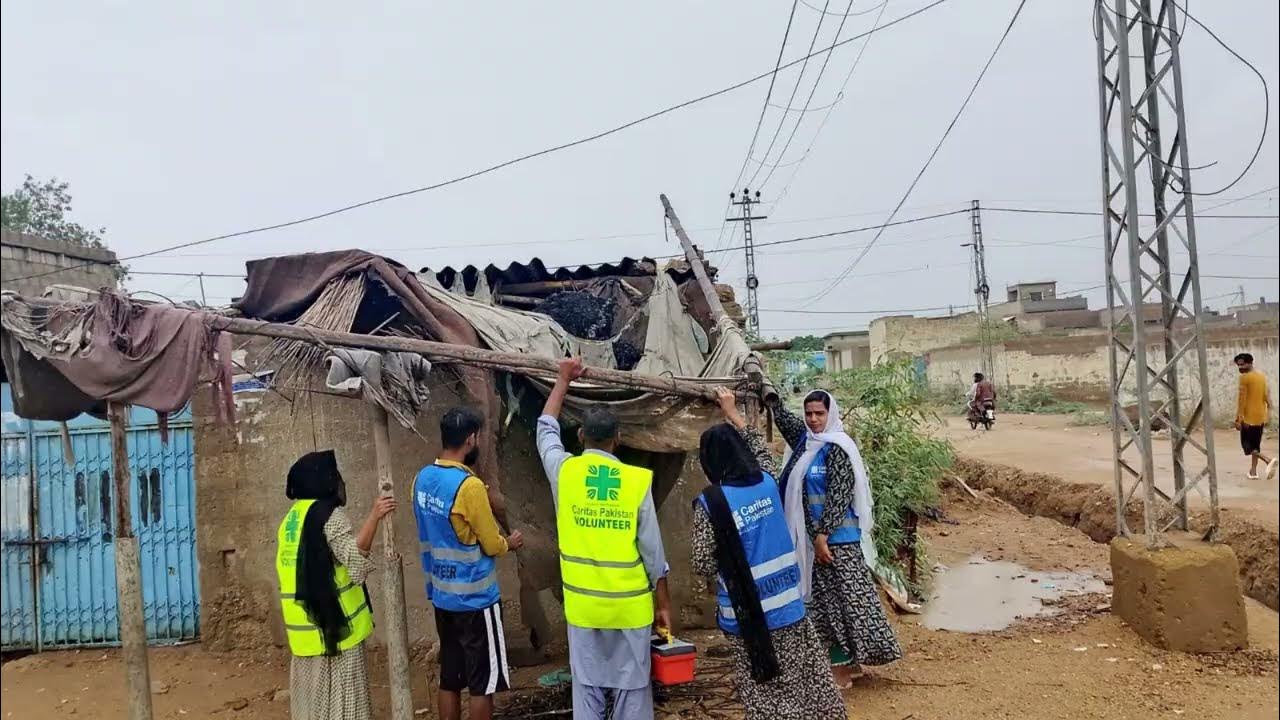Joaquim Magalhães de Castro
None of Pakistan’s provinces has been spared by the heavy rains and flooding of recent months. It’s safe to say that today, with the entire country flooded, there are approximately four million displaced people in extremely precarious situations. Furthermore, the damage to families and the country’s economy is severe: for example, the floods devastated the province of Punjab, Pakistan’s agricultural heartland, destroying more than 60% of its rice, sugarcane, and cotton crops. More than 900 people lost their lives, thousands are in emergency shelters, and many others have permanently lost their homes and are in urgent need of some form of support, however basic. As always, in situations like this, the elderly, children, and the sick are the most vulnerable. The suffering is daily and widespread. Entire families have been living underwater for several weeks, “now facing the risk of disease and epidemics”.
Amjad Gulzar, a Catholic and Executive Director of Caritas Pakistan – the Catholic Church’s relief agency that has provided all the human and material resources at its disposal to help displaced and needy people – issues a warning: “Our priority at Caritas is to save lives. We are distributing ready-made meals and drinking water to people in the flooded areas. In the refugee camps, especially in Punjab province, we are distributing cooking supplies, tents, and mosquito nets.”
Flood victims are in a state of shock: panic and suffering are spreading among survivors, who still remember 2022 and are traumatized by these ongoing natural disasters.
Faced with thousands of people in despair, Caritas volunteers convey a single message, without any discrimination: “We care about you, you are important to us.” And this positive approach provides those complaining not only with material support, but also psychological and moral support.
The parish community of Our Lady Queen of Angels Church in Bhai Pheru, south of Lahore, collaborates closely with Caritas of the Archdiocese of Lahore, welcoming refugees and distributing humanitarian aid. “It’s a small gesture of hope”, says Father Qaiser Feroz OFM Cap, a Capuchin friar and parish priest in Bhai Pheru. “We console and encourage the victims of this natural disaster, telling them that they are not alone in this difficult time; the bishop, the priests, the catechists, and all the faithful are and always will be by their side”.
More than 3,200 villages were affected by the floods in Punjab, and one million people were rescued and evacuated thanks to the efforts of the government and private humanitarian organizations. The overflowing of the Ravi River caused severe damage, flooding crops and homes, thus eliminating the main sources of daily subsistence for all residents in the region: agriculture and livestock. Baba Jaila, from the village of Gohar Kookan, on the banks of the Ravi River, says, “our houses and fields are flooded; we have nowhere to live. Some people were luckier, having been taken in by relatives”. Salamat Masih, a Christian who is also among the victims of the Ravi River floods, says, “we urgently need not only daily food, but also a home to live a dignified and safe life. We ask the authorities to help us leave Gohar Kookan. We want to avoid the risk of being hit by floods every year. Being homeless every year is a terrible experience.”
Meanwhile, Pakistan’s National Disaster Management Authority (NDMA) maintains a high flood alert level in the provinces of eastern Punjab and northwestern Khyber Pakhtunkhwa, saying that residential areas in the city of Peshawar are also at risk of flooding. Since the start of the monsoon season on June 26, rains and floods have caused a total of 863 deaths across Pakistan and caused extensive damage to villages and agricultural land.
Meanwhile, the Ravi Riverfront Urban Development Project, launched by the Pakistani government in August 2020 to address Lahore’s numerous problems, including pollution, sanitation, water supply, and housing shortages, is at the center of public debate. According to analysts, the government ignored negative comments that labeled the project “ecologically unsustainable”, claiming that building dams on the river and replacing agricultural land with residential areas would raise water levels and cause flooding. Currently, most of the area designated for the project is flooded, as are parts of Lahore itself.
Public debate also revolves around the urgency of taking future preventative measures to protect vulnerable groups and areas. Without effective environmental protection measures that can While we cannot mitigate the effects of climate change, Pakistan’s most vulnerable communities will continue to face the risk of displacement and loss of their property.


 Follow
Follow


